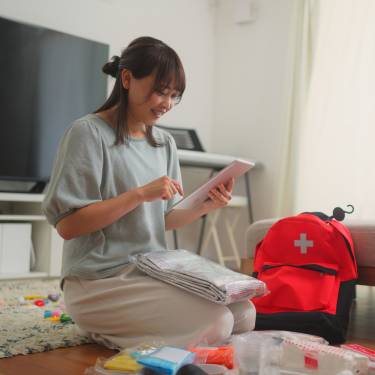National Preparedness Month: Prepare Today for What Tomorrow Could Bring

We all know that disasters can cause physical damage but other aspects of our lives – including financial information – can also be impacted by an unexpected catastrophe. So now is the time to prepare – whether for a natural disaster, cyber-attack or health crisis — before the unexpected happens. Here are four important things to keep in mind:
Insure what’s valuable to you!
Make sure you purchase insurance to protect what’s important to you. Having the right amount of coverage for your home (whether you rent or own) and other expensive belongings (like cars and boats) is a must. Standard insurance doesn’t typically cover disasters. Metro Insurance Advisors can help you review your coverage and identify gaps or specialty insurance such as flood or other disaster protection you might not be aware you need.
Protect important documents!
Make digital copies of – and password protect – all your important documents including birth certificates, marriage certificates, insurance policies, health documents, social security cards, and passports, in addition to storing the originals and copies in fireproof and waterproof containers. In case of emergency, you will want to have these easily accessible to get in touch to start a claim or if you need to seek medical attention. Having the additional digital copies ensures that your important documents are available if you need them quickly. At Metro, members can take advantage of a free Virtual StrongBox to safely store these digital files.
Ensure access to your money!
In the event of local branch closures in an emergency, remember that you can always access your funds with your Metro mobile app and in Metro iBanking. If you need to reach us, you can speak with a live agent via Digital Branch, or by calling us at 877.MY.METRO. In addition, it’s always smart to have some cash on-hand (also stored in a weatherproof container) in case you’re not able to access an ATM or if you need to make a purchase and electronic forms of payment are not available.
Beware of scams!
Scammers are always looking for opportunities to steal information, especially during emergencies when they know people might have their guard down. Always be aware of opportunistic scams – don’t click on links in texts or emails from people you don’t know – and be careful about sharing personal information over the phone, in a text, or email. Remember that Metro and other reputable organizations will not call you to ask for your personal information such as social security numbers, credit card information, or PINS.
While there’s nothing that can prevent and predict disasters before they happen, preparing now can save you time and frustration later.
Tip: If your area has been declared a disaster or under a state of emergency, there are also resources to explore assistance available through the Federal Emergency Management Agency (FEMA).




